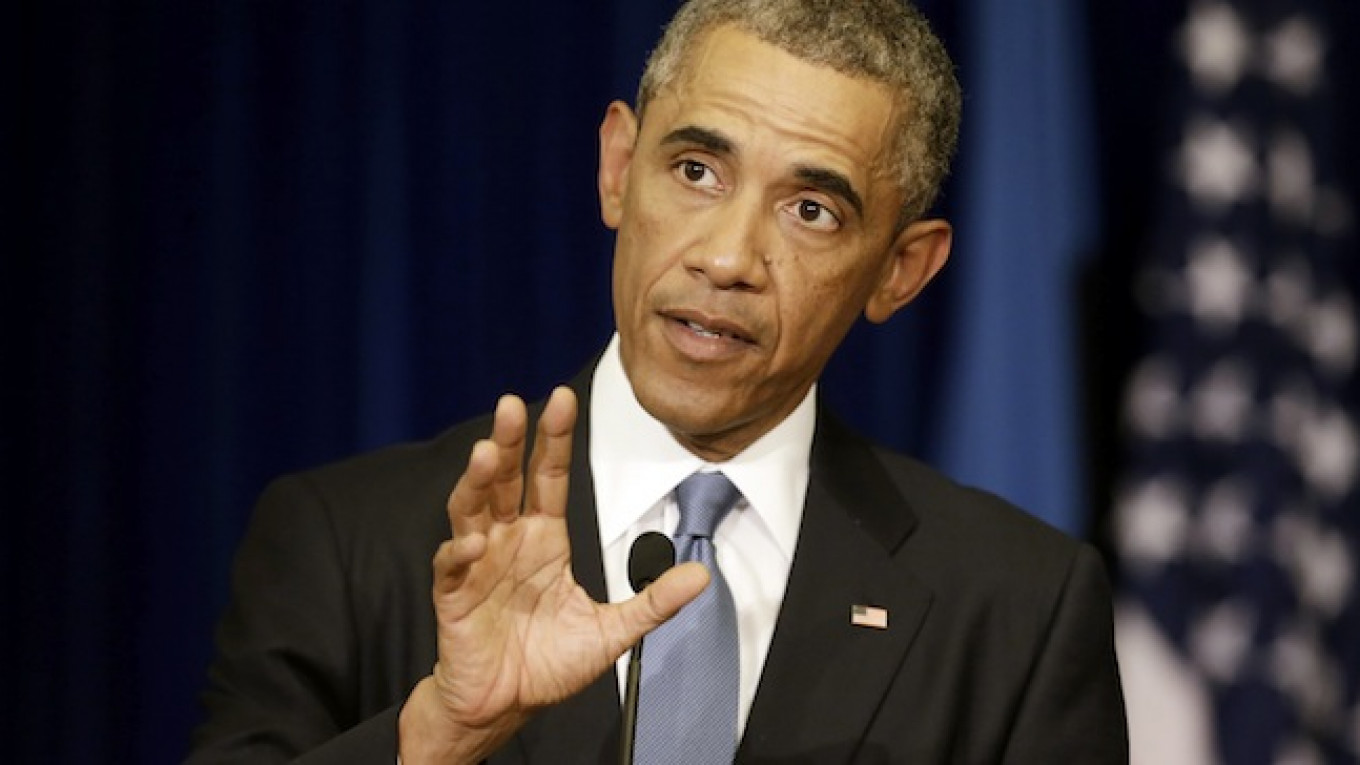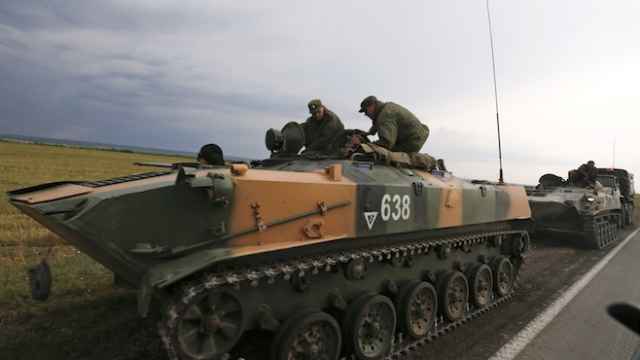U.S. President Barack Obama said a cease-fire in Ukraine could only be effective if Russia stopped "pretending" it was not active in the conflict and stopped sending troops and weapons into the country.
Ukraine said on Wednesday its president had agreed with Russia's Vladimir Putin on steps towards a "cease-fire regime" in Kiev's conflict with pro-Russian rebels, but the Kremlin denied any actual truce deal, sowing confusion on the eve of a NATO summit.
"No realistic political settlement can be achieved if effectively Russia says we are going to continue to send tanks and troops and arms and advisers under the guise of separatists, who are not home grown, and the only possible settlement is if Ukraine cedes its territory or its sovereignty," Obama told a news conference in Tallinn.
Russia denies it has sent armor or troops into eastern Ukraine, a largely-Russian speaking area of the country which has seen separatist fighting since April.
Obama arrived in Tallinn earlier on Wednesday on his way to the NATO summit in Wales to reassure the three ex-Soviet Baltic states that NATO would back them up and that the U.S. was committed to protecting the Alliance's eastern frontier.
The three Baltic states — Lithuania, Latvia and Estonia — are heavily reliant on Russian fuel deliveries and Latvia and Estonia have very large Russian-speaking minorities.
Under the NATO treaty, an attack on any individual NATO state would be treated as an attack on all alliance members. The Baltic states joined NATO in 2004, but Ukraine is not a member.
Obama said Russia was already suffering under the weight of U.S. and European sanctions as its economy was contracting, capital was fleeing and the currency was falling sharply.
"There's an opportunity here, let's see if there's follow up," Obama said.
A Message from The Moscow Times:
Dear readers,
We are facing unprecedented challenges. Russia's Prosecutor General's Office has designated The Moscow Times as an "undesirable" organization, criminalizing our work and putting our staff at risk of prosecution. This follows our earlier unjust labeling as a "foreign agent."
These actions are direct attempts to silence independent journalism in Russia. The authorities claim our work "discredits the decisions of the Russian leadership." We see things differently: we strive to provide accurate, unbiased reporting on Russia.
We, the journalists of The Moscow Times, refuse to be silenced. But to continue our work, we need your help.
Your support, no matter how small, makes a world of difference. If you can, please support us monthly starting from just $2. It's quick to set up, and every contribution makes a significant impact.
By supporting The Moscow Times, you're defending open, independent journalism in the face of repression. Thank you for standing with us.
Remind me later.






